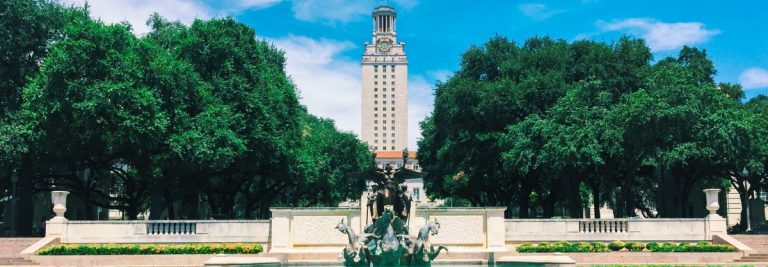
Last year, Australian universities found themselves locked in a battle over academic freedom after several high-profile incidents pitted them against the political beliefs of their Chinese students.
The Chinese Communist Party’s attempts to infiltrate campus grounds aren’t unique to Australia alone. Reports have surfaced of the same being done on US and UK campuses as well.
What’s different at the University of Texas, Austin (UT-Austin) however, is they are fighting back against it.
God Bless Texas!https://t.co/O4twKveojx
— Lawyerforlaws (@lawyer4laws) January 15, 2018
Last Friday, university President Gregory Fenves made clear that the university will not accept any funding from a Chinese Communist Party-linked body for the school’s China Public Policy Center.
In a response letter to Texas Senator Ted Cruz, Fenves wrote:
“Based on that review, I have decided prior to receiving your letter that the university will not receive any programmatic funding from (the China-United States Exchange Foundation) CUSEF. Neither will we accept funds for travel, student exchanges or other initiatives from the organisation.”
Cruz had earlier written to Fenves warn about how CUSEF money could allow China to spread propaganda and affect UT-Austin’s credibility.
The Post noted that the university later decided to ban all CUSEF funding after the school received Fenves’s letter and inquiries from The Post.
Peter Mattis, a China fellow at the Jamestown Foundation and former US intelligence analyst said this decision could change how Chinese money is funnelled into foreign universities in the future, as well as in the movement to counter China’s interference in other societies known as “sharp power”.
Mattis said:
“This is one of the first examples of a university turning down money because it is tied to the Chinese Communist Party’s united front activities.”
He said the university’s deliberative and informed process should be a model for other institutions.
Fenves’s decision was based on an investigation into CUSEF after several professors and university officials raised concerns about the Hong Kong-based foundation’s links with the Chinese Communist Party. The probe wanted to find out how taking money from CUSEF can compromise the school’s integrity or give China undue access or influence to their academic products.
Multiple reports during the investigation had shown CUSEF leader Tung Chee-hwa, to be vice-chairman of the Chinese People’s Political Consultative Conference, a party organ that self-identifies as “a united front organization.”
“The party’s united front activities are intended — still described in Maoist terms — to mobilize the party’s friends to strike at the party’s enemies,” said Peter Mattis, a China fellow at the Jamestown Foundation and former US intelligence analyst.
“That has no place on a university campus in America.”
CUSEF’s funds have reached other leading academic institutions and think tanks, including the Johns Hopkins University School of Advanced International Studies and the Brookings Institution.
Its spokesman denies being an agent of the Chinese government, saying it is supported by private donors who believe a positive US-China relationship “is essential for global well-being.”
Liked this? Then you’ll love these…
China warns students in Australia to stay safe in wake of ‘insulting’ incidents
China accused of ‘buying’ influence in Australia by channeling funds to universities







